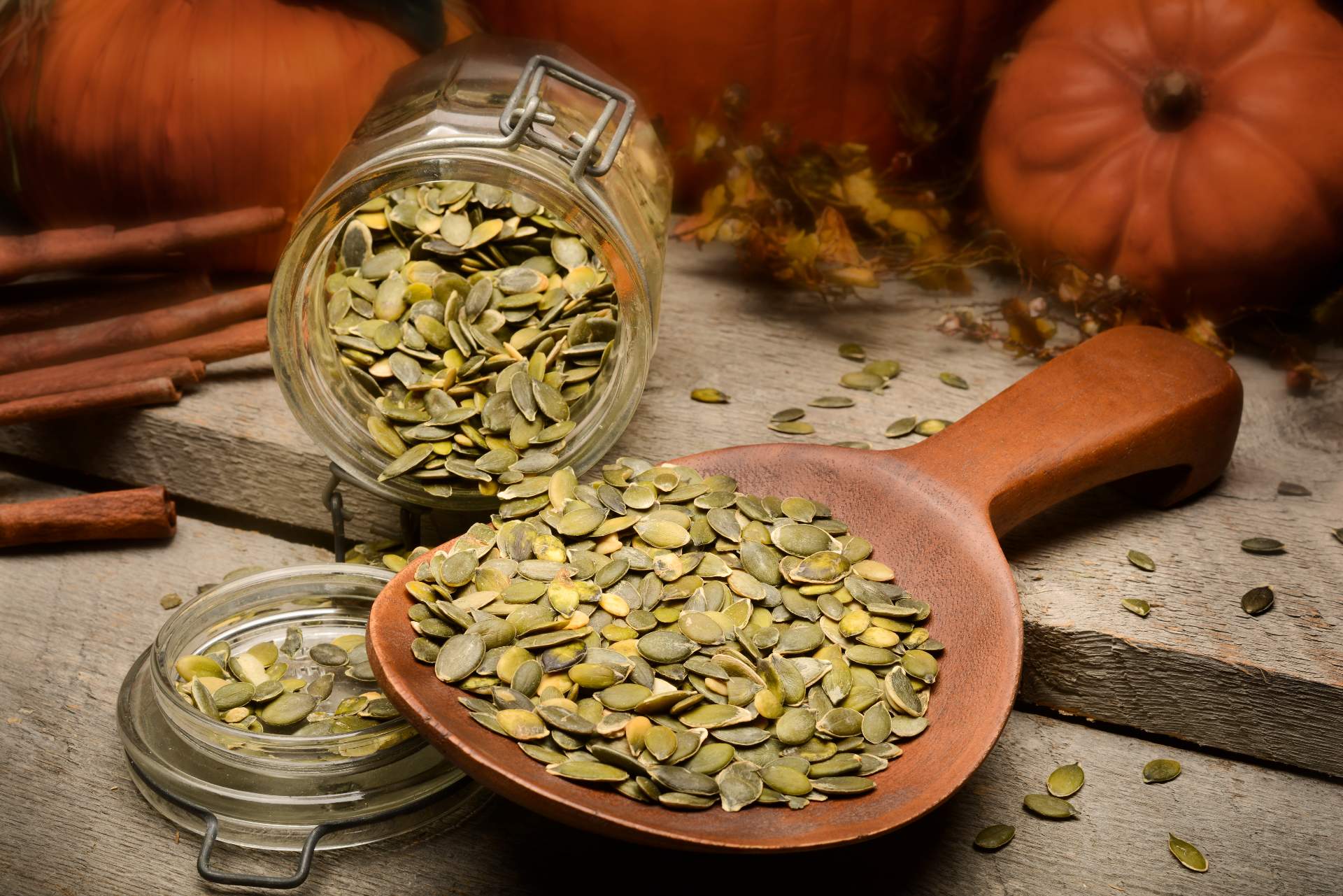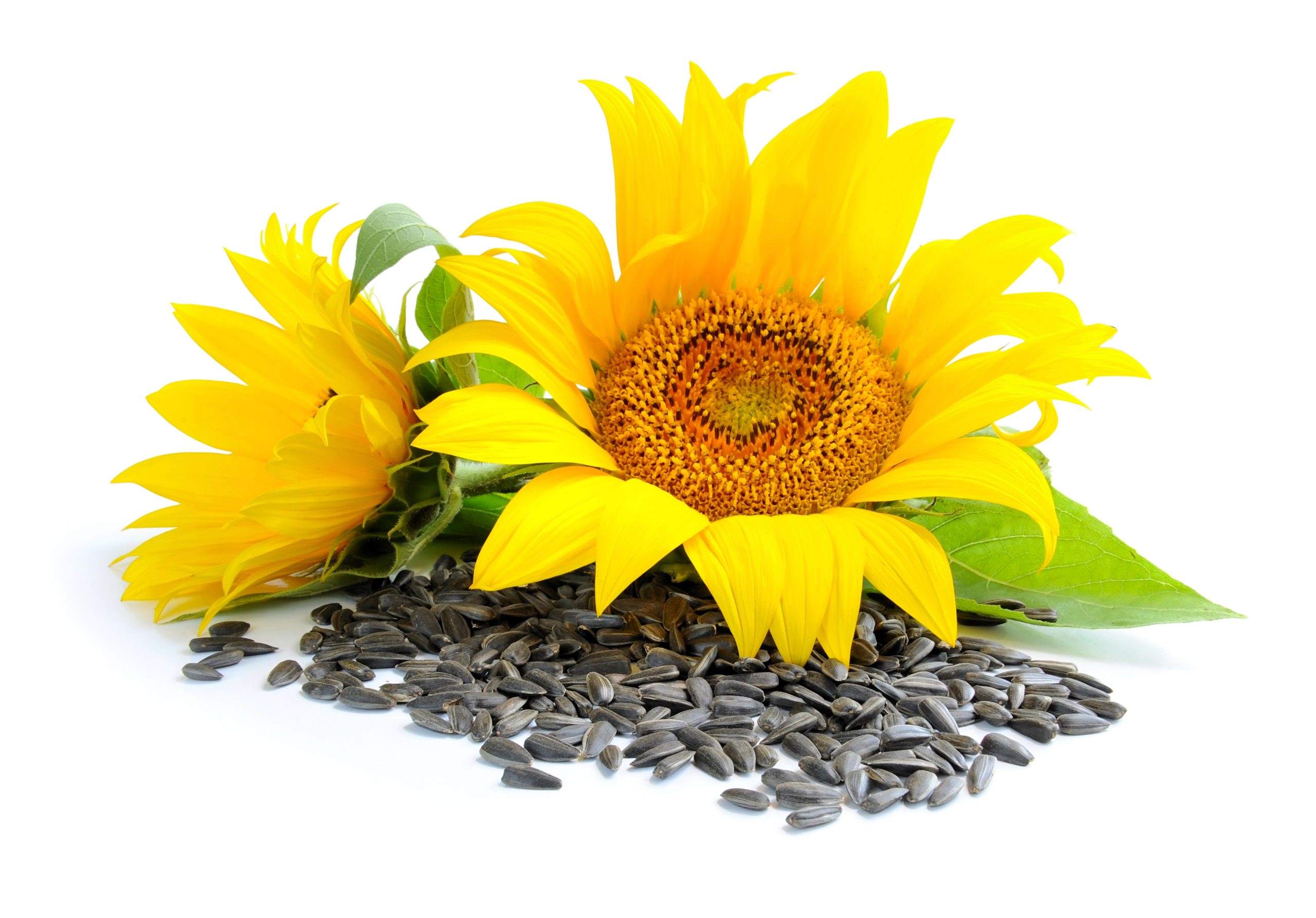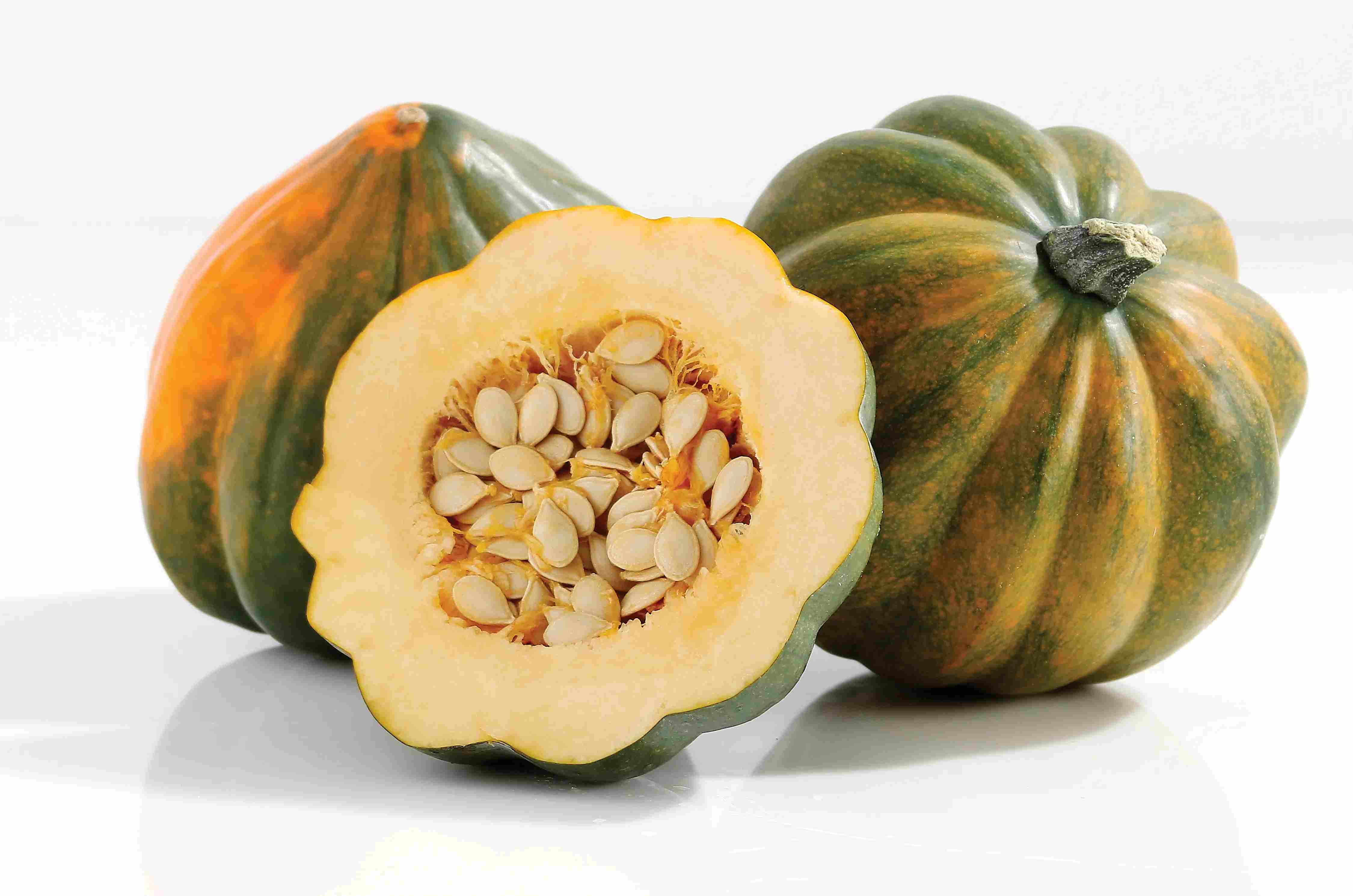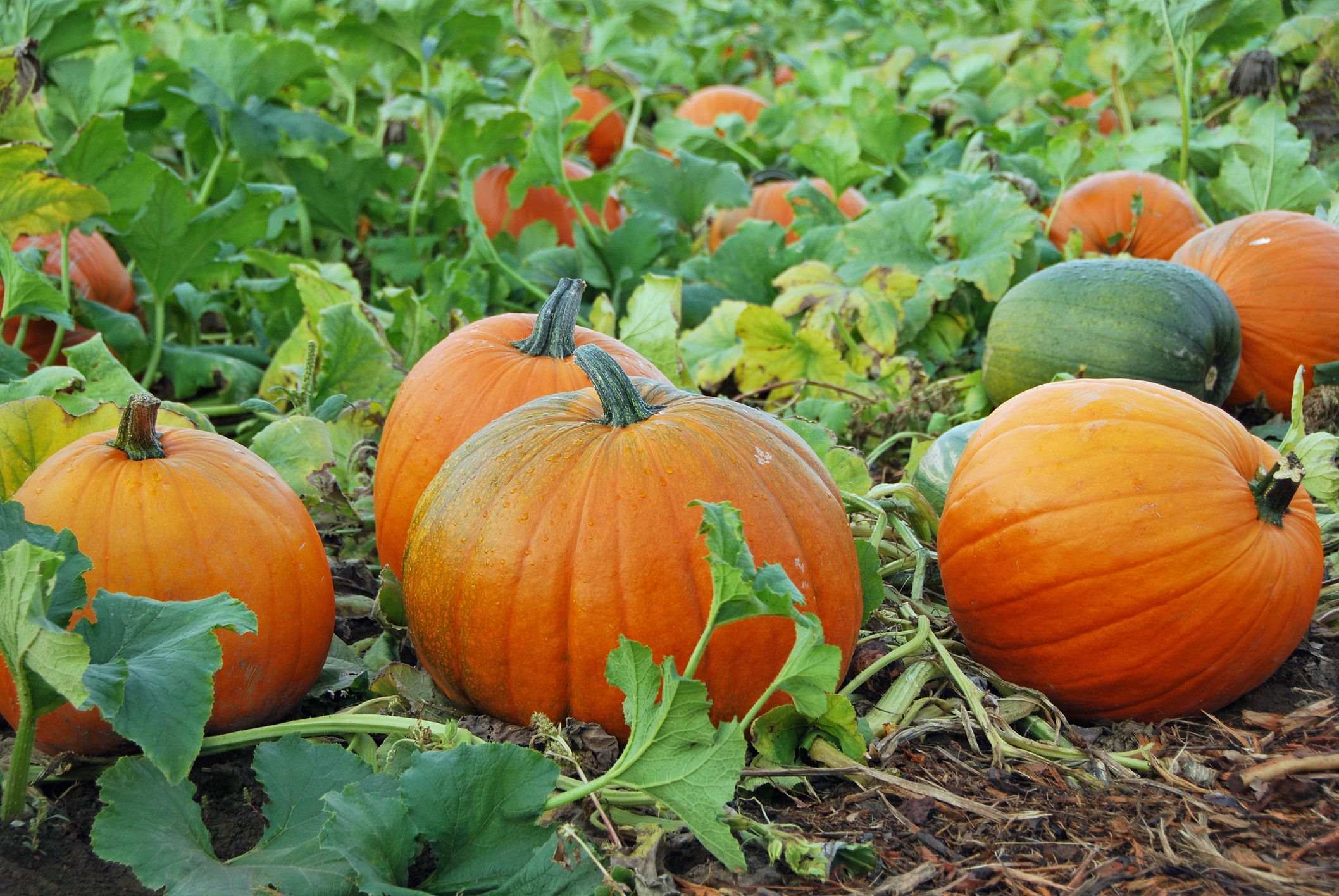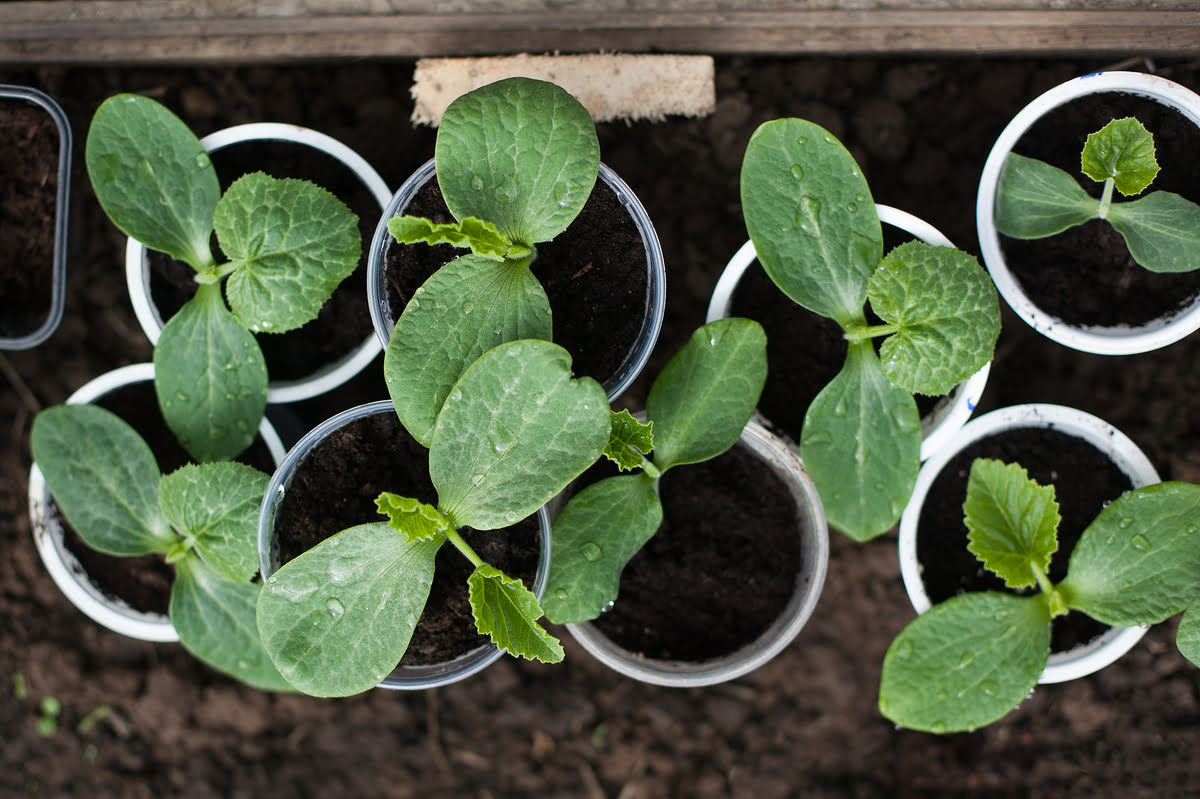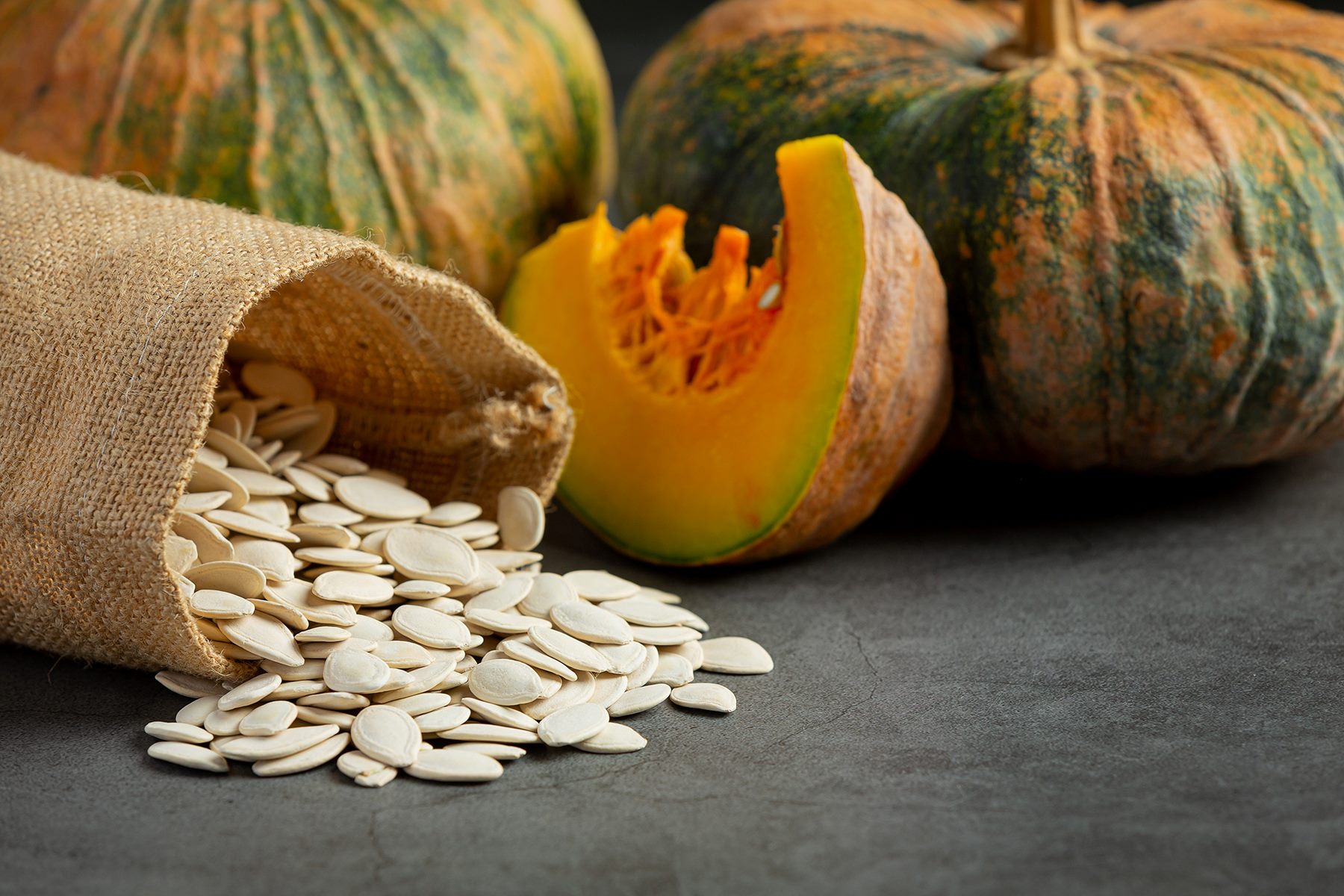Home>Types of Gardening>Edible Gardening>How Are Pumpkin Seeds Good For You
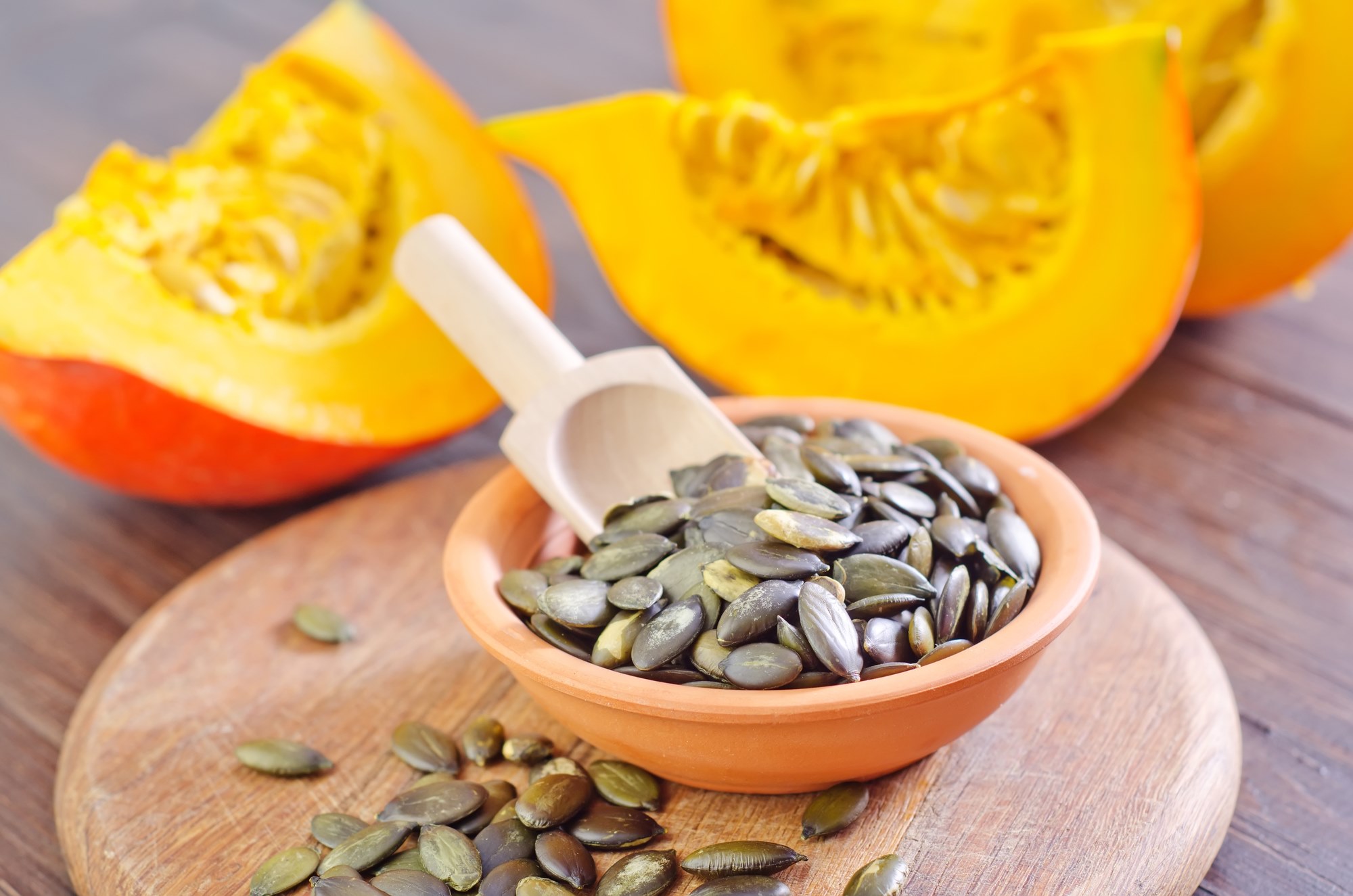

Edible Gardening
How Are Pumpkin Seeds Good For You
Modified: January 22, 2024
Discover the benefits of edible gardening and how pumpkin seeds can improve your health. Explore the nutritional value and learn how to incorporate them into your diet.
(Many of the links in this article redirect to a specific reviewed product. Your purchase of these products through affiliate links helps to generate commission for Chicagolandgardening.com, at no extra cost. Learn more)
Table of Contents
- Introduction
- Nutritional Profile of Pumpkin Seeds
- Health Benefits of Pumpkin Seeds
- Rich in Essential Nutrients
- Source of Healthy Fats
- High in Antioxidants
- Promotes Heart Health
- Supports Digestive Health
- Boosts Immune Function
- Potential Cancer-Fighting Properties
- Side Effects and Precautions
- Ways to Incorporate Pumpkin Seeds into Your Diet
- Conclusion
Introduction
Welcome to the world of edible gardening, where you can grow and enjoy your own delicious and nutritious produce right in your backyard! One plant that deserves a special place in your edible garden is the pumpkin. While most people associate pumpkins with Halloween decorations and pumpkin pie, the seeds that are found inside this festive fruit have a lot to offer in terms of both taste and health benefits.
Pumpkin seeds, also known as pepitas, are packed with essential nutrients and have been consumed for centuries for their medicinal properties. These small, flat, oval-shaped seeds are typically light green in color and have a delicate, nutty flavor. Whether you’re a gardening enthusiast or simply someone looking to improve your overall health, incorporating pumpkin seeds into your diet can be a game-changer.
In this article, we will explore the nutritional profile of pumpkin seeds and delve into the numerous health benefits they offer. From promoting heart health to boosting immune function, these seeds truly are a powerhouse of goodness. We will also provide tips on how to incorporate pumpkin seeds into your daily diet and precautions to keep in mind.
So, grab your gardening tools and get ready to reap the rewards of growing your own pumpkins and harvesting these tiny but mighty seeds!
Nutritional Profile of Pumpkin Seeds
Pumpkin seeds boast an impressive nutrient profile, making them a valuable addition to any healthy diet. These tiny seeds are rich in essential vitamins, minerals, healthy fats, and antioxidants that are beneficial for your overall well-being.
One ounce (28 grams) of pumpkin seeds contains:
- Calories: 151
- Protein: 7 grams
- Fat: 13 grams
- Carbohydrates: 5 grams
- Fiber: 1.7 grams
- Vitamin K: 18% of the Recommended Daily Intake (RDI)
- Iron: 17% of the RDI
- Magnesium: 40% of the RDI
- Zinc: 14% of the RDI
- Phosphorus: 33% of the RDI
In addition to these nutrients, pumpkin seeds are also a good source of potassium, vitamin E, and various antioxidants.
The high protein content in pumpkin seeds makes them an excellent plant-based protein source, especially for vegetarians and vegans. They also provide a good balance of essential amino acids that promote muscle repair and growth.
The healthy fats found in pumpkin seeds are mainly polyunsaturated and monounsaturated fats, including omega-3 and omega-6 fatty acids. These fats play a crucial role in supporting heart health, reducing inflammation, and maintaining healthy cell function.
Pumpkin seeds are also rich in antioxidants, such as vitamin E and carotenoids, which help fight free radicals and protect your cells from oxidative damage. Additionally, they contain phytosterols, plant compounds that have cholesterol-lowering properties.
With their impressive nutritional profile, pumpkin seeds can be considered a nutrient-dense addition to your diet, providing a range of health benefits for your body and mind.
Health Benefits of Pumpkin Seeds
Pumpkin seeds are more than just a tasty snack; they also offer a multitude of health benefits. Let’s explore some of the key reasons why you should consider incorporating these nutritious seeds into your diet:
- Rich in Essential Nutrients: Pumpkin seeds are a nutritional powerhouse, packed with vitamins, minerals, and antioxidants that support overall health. They are particularly high in magnesium, which plays a vital role in various bodily functions, including energy production, muscle function, and bone health.
- Source of Healthy Fats: The healthy fats found in pumpkin seeds, including omega-3 and omega-6 fatty acids, are beneficial for heart health, reducing inflammation, and supporting brain function. These fats also help to nourish your skin and promote a healthy complexion.
- High in Antioxidants: Pumpkin seeds are rich in antioxidants, such as vitamin E and carotenoids, which help protect your cells from damage caused by free radicals. Antioxidants are essential for maintaining a strong immune system and reducing the risk of chronic diseases.
- Promotes Heart Health: The combination of healthy fats, fiber, and antioxidants in pumpkin seeds can have a positive impact on heart health. The monounsaturated and polyunsaturated fats help to lower LDL cholesterol levels and reduce the risk of heart disease.
- Supports Digestive Health: Pumpkin seeds are a great source of dietary fiber, which aids in digestion, promotes regular bowel movements, and helps maintain a healthy gut. Additionally, the fiber content can contribute to a feeling of fullness, making them a helpful addition to weight management efforts.
- Boosts Immune Function: The nutrients found in pumpkin seeds, including zinc, vitamin E, and antioxidants, help support a strong immune system. These nutrients play a crucial role in protecting against infections, reducing inflammation, and promoting overall immune function.
- Potential Cancer-Fighting Properties: Some studies suggest that the antioxidants and other bioactive compounds in pumpkin seeds may have potential anti-cancer effects. Test-tube and animal studies have shown that pumpkin seed extract may help inhibit the growth and spread of certain types of cancer cells, although more research is needed to confirm these findings.
By incorporating pumpkin seeds into your diet, you can enjoy these health benefits and add a delicious and nutritious element to your meals and snacks.
Rich in Essential Nutrients
Pumpkin seeds are a nutritional powerhouse, packed with a wide range of essential nutrients that contribute to overall health and well-being. Let’s take a closer look at the key nutrients found in pumpkin seeds:
Magnesium: Pumpkin seeds are one of the richest plant sources of magnesium. This essential mineral is involved in over 300 enzymatic reactions in the body and plays a crucial role in energy production, muscle function, and bone health. Adequate magnesium intake is also important for maintaining a healthy nervous system and regulating blood pressure levels.
Zinc: Pumpkin seeds are an excellent source of zinc, a mineral that is essential for immune function, wound healing, and DNA synthesis. Zinc also plays a vital role in the production and function of hormones, making it important for reproductive health and fertility.
Phosphorus: Pumpkin seeds are rich in phosphorus, a mineral that is essential for bone health and the formation of DNA, cell membranes, and ATP (the body’s main energy source). Phosphorus is also involved in maintaining proper pH balance in the body and facilitating nerve signaling.
Iron: Pumpkin seeds contain a good amount of iron, which is necessary for the production of hemoglobin, the protein responsible for transporting oxygen throughout the body. Iron is also essential for maintaining healthy cells, supporting brain function, and preventing iron-deficiency anemia.
Vitamin E: Pumpkin seeds are a great source of vitamin E, a powerful antioxidant that helps protect cells from damage caused by free radicals. Vitamin E is also important for maintaining healthy skin, hair, and nails, and it supports immune function.
Protein: Pumpkin seeds are a rich source of plant-based protein, making them an excellent choice for vegetarians and vegans. Protein is essential for building and repairing tissues, producing enzymes and hormones, and supporting muscle growth and maintenance.
Omega-3 Fatty Acids: Pumpkin seeds contain beneficial omega-3 fatty acids, which have anti-inflammatory properties and support brain health. These healthy fats play a role in reducing the risk of chronic diseases, such as heart disease and arthritis.
Incorporating pumpkin seeds into your diet is a simple and tasty way to ensure you’re getting a wide variety of essential nutrients that support your overall health and vitality.
Source of Healthy Fats
Pumpkin seeds are not only a rich source of nutrients but also provide a generous amount of healthy fats that are beneficial for your body. These fats play a vital role in maintaining good health and are essential for various bodily functions. Let’s explore why pumpkin seeds are a great source of healthy fats:
Monounsaturated Fats: Pumpkin seeds contain monounsaturated fats, which are considered heart-healthy fats. These fats help to reduce bad cholesterol levels (LDL) in the blood, lower the risk of heart disease, and promote overall cardiovascular health. Including monounsaturated fats in your diet can also improve insulin sensitivity and help manage blood sugar levels.
Polyunsaturated Fats: Pumpkin seeds are also rich in polyunsaturated fats, including omega-3 and omega-6 fatty acids. These essential fatty acids play a crucial role in brain function, reducing inflammation, and supporting heart health. Omega-3 fatty acids, in particular, have been shown to have numerous benefits, including improving cognitive function, reducing the risk of chronic diseases, and supporting overall well-being.
Phytosterols: Pumpkin seeds are a great source of phytosterols, plant compounds that are structurally similar to cholesterol. Phytosterols have been found to help lower LDL cholesterol levels and reduce the risk of heart disease. They work by blocking the absorption of cholesterol in the digestive tract, leading to decreased levels of LDL cholesterol in the bloodstream.
Antioxidants: The healthy fats in pumpkin seeds also provide an abundance of antioxidants, such as vitamin E. Antioxidants help protect your cells from oxidative damage caused by free radicals, reducing the risk of chronic diseases and supporting overall health. Vitamin E, in particular, is known for its skin-boosting properties and ability to promote a healthy complexion.
By including pumpkin seeds in your diet, you can reap the benefits of these healthy fats. Sprinkle them on salads, add them to granola or trail mix, or blend them into homemade energy bars to enjoy their nutty flavor while nourishing your body with essential fats.
High in Antioxidants
Pumpkin seeds are a fantastic source of antioxidants, which are essential for maintaining optimal health and protecting your cells from damage caused by harmful molecules called free radicals. Antioxidants play a vital role in reducing oxidative stress and inflammation in the body, thereby lowering the risk of chronic diseases and promoting overall well-being. Let’s explore why pumpkin seeds are high in antioxidants:
Vitamin E: Pumpkin seeds are particularly rich in vitamin E, a potent antioxidant that helps protect your cells from free radical damage. Vitamin E supports the immune system, promotes healthy skin, and may have anti-aging effects. Consuming foods high in vitamin E, like pumpkin seeds, is associated with a reduced risk of cardiovascular diseases and certain types of cancer.
Phytochemicals: Pumpkin seeds contain various phytochemicals that act as antioxidants. These include carotenoids like beta-carotene, lutein, and zeaxanthin. Carotenoids are known to support eye health, protect against age-related macular degeneration, and promote healthy skin. They may also have anti-inflammatory properties and help reduce the risk of certain cancers.
Phytosterols: In addition to their cholesterol-lowering properties, phytosterols found in pumpkin seeds also possess antioxidant properties. Research suggests that phytosterols may help reduce inflammation, enhance immune function, and protect against various chronic diseases, including heart disease and certain types of cancer.
Minerals: The minerals found in pumpkin seeds, such as zinc and manganese, also contribute to their antioxidant activity. Zinc, for example, acts as a cofactor for enzymes involved in antioxidant defense mechanisms in the body, while manganese supports the production of enzymes that scavenge and neutralize free radicals.
Adding pumpkin seeds to your diet is a simple and delicious way to increase your antioxidant intake. You can enjoy them as a snack, sprinkle them on salads or roasted vegetables, or incorporate them into baked goods for an extra crunch and a boost of antioxidant power.
Promotes Heart Health
Pumpkin seeds are not only delicious but also have properties that promote heart health. These small but mighty seeds contain a variety of nutrients and compounds that can contribute to a healthy cardiovascular system. Let’s explore how pumpkin seeds can benefit your heart:
Healthy Fats: Pumpkin seeds are a good source of healthy fats, including monounsaturated and polyunsaturated fats. These fats have been shown to help lower LDL (bad) cholesterol levels and reduce the risk of heart disease. Including these healthy fats in your diet can also improve cholesterol levels, promote better blood vessel function, and decrease inflammation in the arteries.
Rich in Magnesium: Pumpkin seeds are a fantastic source of magnesium, a mineral that plays a vital role in maintaining a healthy heart. Magnesium helps regulate blood pressure, supports proper heart rhythm, and contributes to overall cardiovascular health. An adequate intake of magnesium has been associated with a lower risk of high blood pressure, heart attacks, and strokes.
Phytosterols: Pumpkin seeds are also rich in phytosterols, plant compounds that have been found to help lower LDL cholesterol levels. High levels of LDL cholesterol are a risk factor for heart disease, and consuming foods containing phytosterols, like pumpkin seeds, can help reduce LDL cholesterol absorption in the gut and support heart health.
Antioxidants: The antioxidants found in pumpkin seeds, including vitamin E, help protect the cells in your cardiovascular system from oxidative damage. Oxidative stress and inflammation are key contributors to heart disease, and including foods rich in antioxidants can support a healthy heart by reducing these damaging effects.
Moreover, the fiber content in pumpkin seeds may have additional benefits for heart health. Fiber helps to regulate cholesterol levels, maintain healthy blood sugar levels, and promote a feeling of fullness, which can aid in weight management.
By incorporating pumpkin seeds into your diet, you can take a proactive step toward supporting heart health. Enjoy them as a snack, sprinkle them on salads or soups, or use them as a nutritious addition to your baked goods. Remember, a heart-healthy lifestyle involves a well-balanced diet, regular physical activity, and overall healthy habits.
Supports Digestive Health
Pumpkin seeds are not only tasty but also beneficial for your digestive health. They contain a combination of fiber, nutrients, and compounds that promote a healthy digestive system. Including pumpkin seeds in your diet can offer the following advantages:
Dietary Fiber: Pumpkin seeds are an excellent source of dietary fiber, both soluble and insoluble. These fibers add bulk to your stool, promote regular bowel movements, and help prevent constipation. Additionally, fiber can also contribute to a feeling of fullness, which may aid in weight management and controlling overeating.
Gut Health: The fiber in pumpkin seeds acts as a prebiotic, providing nourishment for beneficial gut bacteria. These bacteria play a crucial role in maintaining a healthy digestive system. By supporting a balanced gut microbiome, pumpkin seeds can promote better nutrient absorption, enhanced immune function, and a lower risk of digestive disorders such as irritable bowel syndrome (IBS) and inflammatory bowel disease (IBD).
Inflammation: Pumpkin seeds contain antioxidants and anti-inflammatory compounds that can help reduce inflammation in the digestive tract. Inflammation is associated with various digestive conditions, including Crohn’s disease, ulcerative colitis, and gastritis. By incorporating pumpkin seeds into your diet, you can support a healthier digestive system by reducing inflammation.
Healthy Fats: The healthy fats present in pumpkin seeds help lubricate the digestive system and facilitate the absorption of fat-soluble vitamins and other nutrients. They also provide a source of energy for the cells lining the digestive tract.
It’s worth mentioning that while pumpkin seeds can be beneficial for many people, individuals with specific digestive conditions or those who need to follow a low-fiber diet should consult their healthcare provider before incorporating large amounts of pumpkin seeds into their diet.
Enjoy pumpkin seeds as a tasty snack, sprinkle them on salads or yogurt, or add them to your favorite recipes like granola or baked goods. By including these nutritious seeds in your diet, you can provide support for your digestive system and reap the benefits of a healthier gut.
Boosts Immune Function
Pumpkin seeds are an excellent addition to your diet when it comes to supporting a healthy immune system. They are packed with nutrients and compounds that play a vital role in enhancing immune function. Let’s explore how pumpkin seeds can give your immune system a boost:
Zinc: Pumpkin seeds are a rich source of zinc, an essential mineral crucial for immune system function. Zinc helps to activate immune cells, supports the production of antibodies, and aids in wound healing. Consuming foods high in zinc, like pumpkin seeds, can contribute to a stronger immune response and a reduced risk of infections.
Vitamin E: Pumpkin seeds are also a good source of vitamin E, an antioxidant that helps protect immune cells from damage caused by free radicals. Vitamin E supports the production of antibodies and enhances the activity of natural killer cells, which play a vital role in fighting off infections and tumors.
Antioxidants: Pumpkin seeds contain a variety of antioxidants, including vitamin E and other phytochemicals, that help reduce oxidative stress and inflammation in the body. By reducing inflammation, pumpkin seeds can support a balanced immune response and prevent chronic diseases associated with a weakened immune system.
Omega-3 Fatty Acids: The omega-3 fatty acids found in pumpkin seeds have anti-inflammatory properties and can help modulate immune responses. They support the production of specialized immune cells and assist in maintaining a healthy immune system balance.
Protein: Pumpkin seeds provide a good amount of plant-based protein, which is essential for building and repairing tissues, including those of the immune system. Protein plays a crucial role in the production of antibodies and other immune-related molecules.
By incorporating pumpkin seeds into your diet, you can give your immune system a natural boost. Enjoy them as a snack, sprinkle them on salads or soups, or add them to your favorite recipes like smoothies or energy bars. Remember, a strong immune system is vital for overall health and well-being.
Potential Cancer-Fighting Properties
Pumpkin seeds may have potential cancer-fighting properties, making them an intriguing addition to a healthy diet. While research is ongoing, initial studies have suggested that certain compounds found in pumpkin seeds may help combat cancer. Here are some of the ways in which pumpkin seeds may contribute to cancer prevention:
Antioxidant Activity: Pumpkin seeds are rich in antioxidants, including vitamin E and carotenoids, which help protect cells from oxidative damage caused by free radicals. By neutralizing harmful free radicals, antioxidants can prevent DNA damage and reduce the risk of certain types of cancers.
Phytochemicals: Pumpkin seeds contain phytosterols, lignans, and other bioactive compounds that may have potential anticancer effects. These compounds have been shown to inhibit the growth of cancer cells and induce apoptosis (programmed cell death) in various types of cancers, including breast, prostate, and colon cancers. However, further research is needed to understand the mechanisms by which these compounds exert their anticancer activities.
Omega-3 Fatty Acids: The omega-3 fatty acids present in pumpkin seeds have been associated with a reduced risk of certain cancers, such as breast, colon, and prostate cancers. These fatty acids exhibit anti-inflammatory properties and may help regulate cell growth and apoptosis in cancer cells.
While these preliminary findings are promising, it is essential to note that pumpkin seeds alone cannot prevent or cure cancer. They should be seen as a part of a well-rounded, cancer-preventive lifestyle that includes a balanced diet, regular exercise, avoiding tobacco and excessive alcohol consumption, and maintaining a healthy weight. Consulting with a healthcare professional is always recommended for personalized advice and guidance.
Incorporating pumpkin seeds into your diet is simple and delicious. Enjoy them as a snack, sprinkle them on salads, or incorporate them into homemade granola or baked goods. While more scientific evidence is needed, adding pumpkin seeds to your diet may contribute to a healthy lifestyle and potentially reduce the risk of certain types of cancers.
Side Effects and Precautions
Pumpkin seeds are generally safe to consume and offer numerous health benefits. However, it’s important to be aware of potential side effects and take necessary precautions:
Allergies: Some individuals may have allergies to pumpkin seeds. If you are allergic to other seeds or nuts, it is advisable to exercise caution when consuming pumpkin seeds. Allergic reactions can range from mild symptoms like itching or hives to more severe symptoms such as difficulty breathing and anaphylaxis. If you experience any adverse reactions, discontinue consumption and seek medical attention immediately.
High Caloric Density: While pumpkin seeds are nutrient-dense and provide a wealth of health benefits, they are also high in calories. If you are watching your calorie intake or trying to lose weight, it’s important to consume pumpkin seeds in moderation and be mindful of portion sizes.
High in Fiber: The fiber content in pumpkin seeds can be beneficial for most people, but individuals with certain digestive conditions, such as irritable bowel syndrome (IBS) or diverticulitis, may need to limit their intake. Excessive fiber consumption can lead to gastrointestinal discomfort, bloating, and gas. If you have any digestive issues, it’s best to consult with a healthcare professional regarding the appropriate intake of fiber-rich foods like pumpkin seeds.
Seed Coating: Pumpkin seeds are often sold with their outer white or green shell intact. While the shell is edible, some people find it tough or difficult to digest. If you prefer, you can purchase shelled pumpkin seeds or remove the shell before consuming them.
Moderate Oxalate Content: Pumpkin seeds contain moderate levels of oxalates, which can contribute to the formation of kidney stones in susceptible individuals. If you have a history of kidney stones or are at high risk, it may be advisable to limit your consumption of pumpkin seeds or consult with a healthcare professional for personalized guidance.
As with any dietary changes, it’s always a good idea to listen to your body and pay attention to how it responds. If you experience any adverse reactions or concerns, it’s best to seek guidance from a healthcare professional.
By taking these precautions and being mindful of your individual sensitivities, you can enjoy the many benefits of incorporating pumpkin seeds into your healthy diet.
Ways to Incorporate Pumpkin Seeds into Your Diet
Pumpkin seeds are incredibly versatile and can be incorporated into your diet in various delicious and nutritious ways. Here are some ideas to help you enjoy the benefits of pumpkin seeds:
- Snack on roasted seeds: Roasting pumpkin seeds is a classic and simple way to enjoy them. Toss them in a bit of olive oil and your choice of seasonings, like salt, garlic powder, or paprika. Spread them on a baking sheet and bake them at 350°F (175°C) for about 10-15 minutes until they are golden brown and crispy. Enjoy them as a healthy snack on their own or sprinkle them over salads.
- Sprinkle on salads and soups: Add a crunchy texture and nutty flavor to your favorite salads by sprinkling pumpkin seeds on top. They can also be a great addition to soups and stews as a garnish.
- Bake them into bread or muffins: Blend pumpkin seeds into a fine powder and incorporate them into your favorite bread or muffin recipes. They will add a nutty flavor and boost the nutritional value of your baked goods.
- Blend them into smoothies: Upgrade your smoothies with a dose of nutrients by adding a tablespoon or two of pumpkin seeds. They will contribute healthy fats, fiber, and protein to your beverage, making it more satisfying and nutritious.
- Create a pumpkin seed butter: Similar to peanut or almond butter, you can create your own pumpkin seed butter by blending roasted pumpkin seeds until smooth. Spread it on toast, crackers, or use it as a dip for fruits and vegetables.
- Mix them into granola: Enhance your homemade granola with the addition of pumpkin seeds. They will provide a delightful crunch and nutritional goodness to your breakfast or snack.
- Make a trail mix: Combine pumpkin seeds with other nuts, dried fruits, and a touch of dark chocolate to create a flavorful and nutritious trail mix. It’s a portable and energizing snack for on-the-go moments.
- Top your yogurt or oatmeal: Sprinkle pumpkin seeds over your morning yogurt or oatmeal for an added crunch. They will provide a satisfying texture and boost the nutritional value of your breakfast.
Remember, pumpkin seeds can be enjoyed in both sweet and savory dishes, giving you plenty of opportunities to incorporate them into your daily meals and snacks. Experiment with different recipes and find your favorite ways to savor the goodness of pumpkin seeds.
Conclusion
Pumpkin seeds are not only a popular seasonal snack but also a nutritional powerhouse that can provide a wide range of health benefits. From their impressive nutrient profile to their potential cancer-fighting properties, these tiny seeds offer a wealth of goodness. Incorporating pumpkin seeds into your diet is a simple and delicious way to support your overall health and well-being.
From a nutritional standpoint, pumpkin seeds are rich in essential nutrients like magnesium, zinc, iron, and vitamin E. They are also a great source of healthy fats, including omega-3 and omega-6 fatty acids, which promote heart health and reduce inflammation. With their high antioxidant content, pumpkin seeds aid in protecting your cells from oxidative damage and boosting immune function.
While the potential cancer-fighting properties of pumpkin seeds are still being studied, preliminary research suggests that these seeds may have compounds that inhibit cancer cell growth.
As with any food, it’s important to be mindful of potential side effects and allergies. Some people may experience allergic reactions to pumpkin seeds, and excessive consumption may lead to gastrointestinal discomfort or interfere with certain medical conditions. It is always recommended to consult with a healthcare professional if you have any concerns or specific dietary considerations.
Fortunately, there are numerous ways to incorporate pumpkin seeds into your diet and enjoy their taste and nutritional benefits. Whether you choose to snack on them, sprinkle them on salads, blend them into smoothies, or incorporate them into your favorite recipes, these versatile seeds add a delightful crunch and a boost of nutrients.
So, why not embark on this edible gardening adventure and enjoy the satisfaction of growing your own pumpkins and harvesting the nourishing seeds they provide? With their rich nutritional profile and potential health benefits, pumpkin seeds make a delicious and nutritious addition to any diet.
